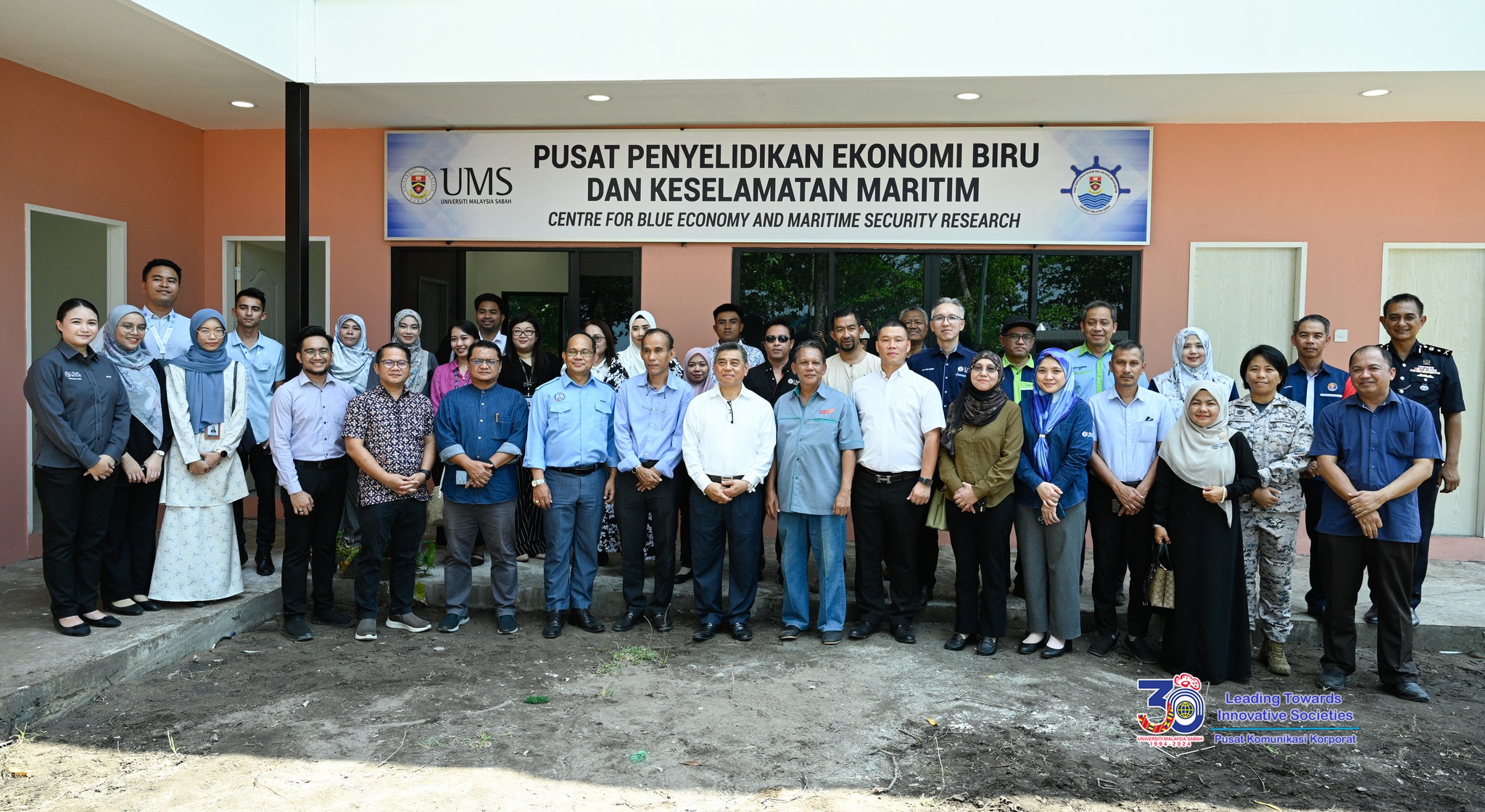 A comprehensive study on the seas surrounding Sabah is set to be the main focus of the newly established Centre for Blue Economy and Maritime Security Research (PPEBKM).
A comprehensive study on the seas surrounding Sabah is set to be the main focus of the newly established Centre for Blue Economy and Maritime Security Research (PPEBKM).
A brainchild of the Universiti Malaysia Sabah (UMS), the initiative aligns closely with its expertise in blue economy and maritime studies, as well as the Sabah Maju Jaya (SMJ) agenda.
UMS vice-chancellor Prof Datuk Dr Kasim Mansor highlighted the centre’s role as a research and laboratory hub, aimed at advancing knowledge on various marine-related topics essential to Sabah’s development.
“The blue economy is a major agenda under SMJ, and with our university’s expertise in blue economy and maritime affairs, this centre’s establishment is timely.
“Extensive research here can lead to world-class journal publications,” he said at PPEBKM’s official launch at UMS’ Outdoor Development Centre Beach on Monday (Nov 4).
Kasim said that the rich marine resources of Sabah represent a major economic benefit for the region.
He also pointed out that Sabah’s unique location — bordered by the South China Sea, Sulu Sea, and Celebes Sea — comes with security challenges, including smuggling, kidnapping, and extortion.
Kasim added that the accumulation of research and data through PPEBKM will contribute to policy development and serve as a valuable resource for future generations.
The event also marked the launch of the PPEBKM Journal and Database.
Also present were SMJ Secretariat chief operating officer Ramlee Kariah, UMS deputy vice-chancellor (research and innovation) Prof Dr Rosalam Sarbatly, and PPEBKM director, Prof Dr Ismail Ali.



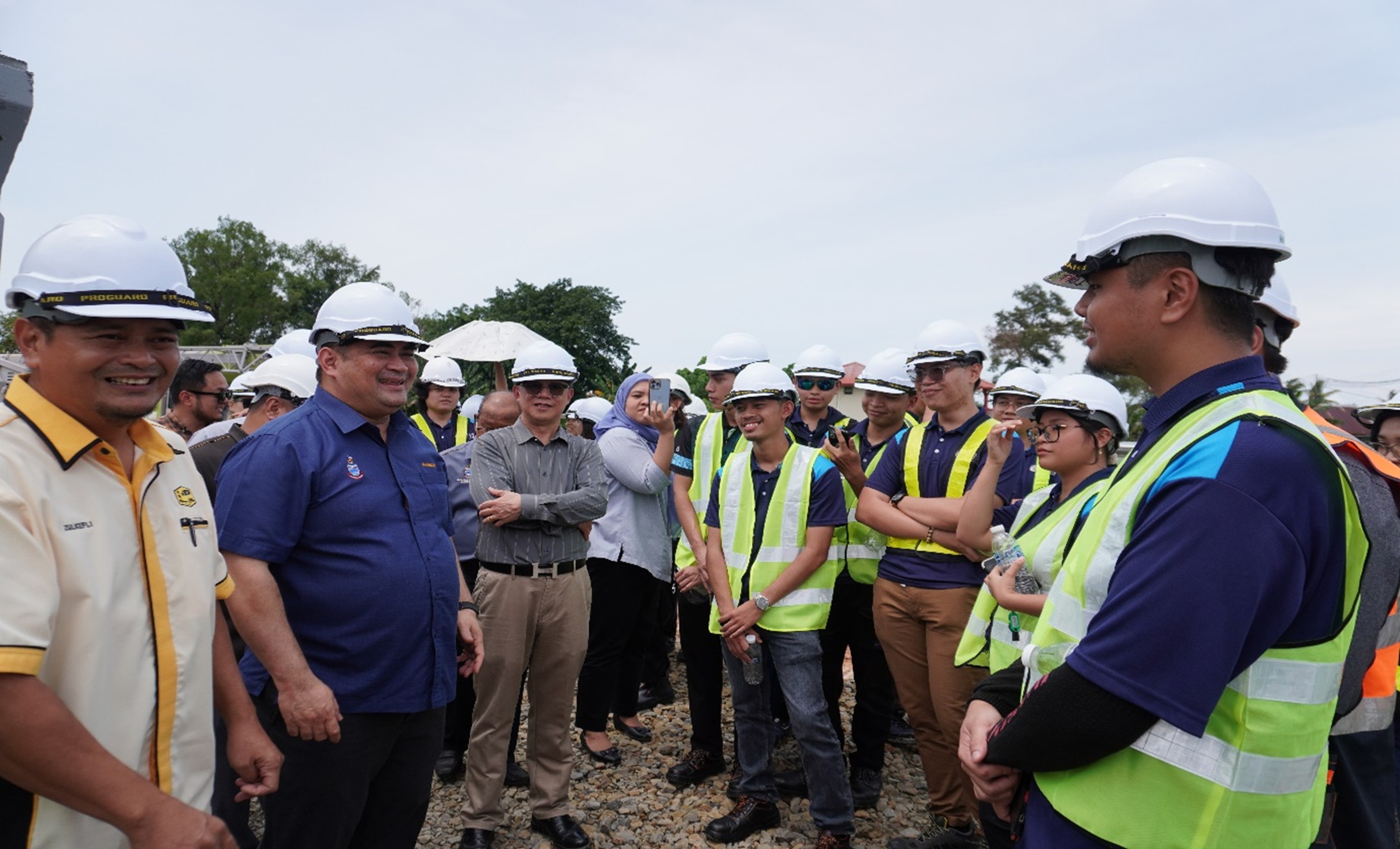 The 'On-Site Learning' activity was carried out by second-year students from the Civil Engineering program, Faculty of Engineering (FKJ) Universiti Malaysia Sabah (UMS), which took place at Kampung Padang Tengah, Petagas, recently.
The 'On-Site Learning' activity was carried out by second-year students from the Civil Engineering program, Faculty of Engineering (FKJ) Universiti Malaysia Sabah (UMS), which took place at Kampung Padang Tengah, Petagas, recently.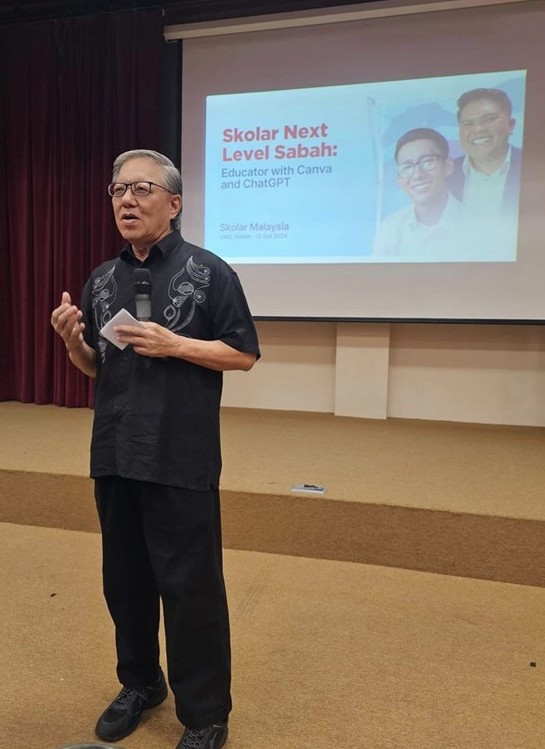 The Skolar Next Level: Educators with Canva and ChatGPT (SNL) program, organized by Skolar Malaysia in collaboration with Center For e-Learning (PEP) Universiti Malaysia Sabah (UMS) and Sawit Kinabalu Group, aims to expose educators to the use of Generative AI technology and Canva in teaching and learning.
The Skolar Next Level: Educators with Canva and ChatGPT (SNL) program, organized by Skolar Malaysia in collaboration with Center For e-Learning (PEP) Universiti Malaysia Sabah (UMS) and Sawit Kinabalu Group, aims to expose educators to the use of Generative AI technology and Canva in teaching and learning.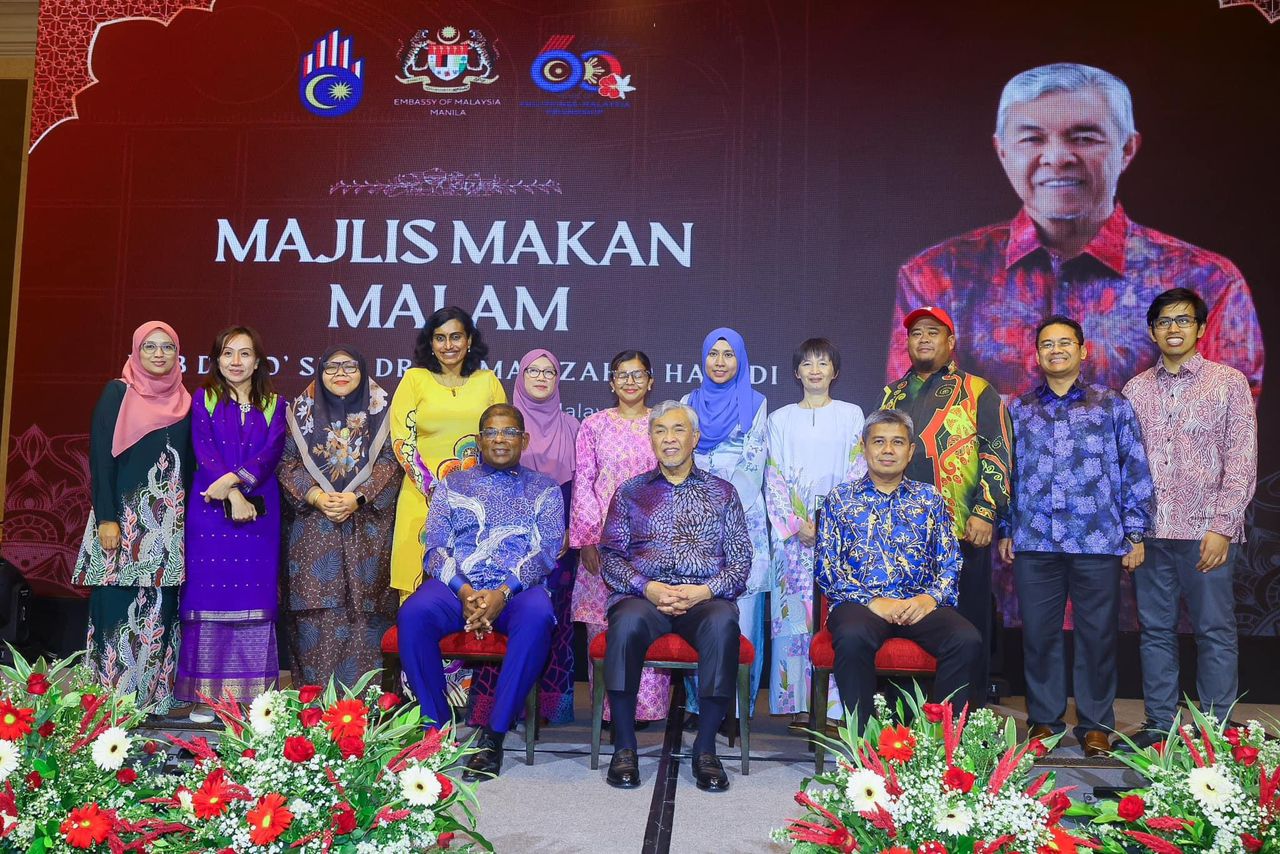 Universiti Malaysia Sabah (UMS), through its Natural Disaster Research Centre (NDRC), strengthened its commitment to disaster research and management by participating in the Asia Pacific Ministerial Conference on Disaster Risk Reduction (APMCDRR) 2024 held at the Manila International Convention Center, Philippines.
Universiti Malaysia Sabah (UMS), through its Natural Disaster Research Centre (NDRC), strengthened its commitment to disaster research and management by participating in the Asia Pacific Ministerial Conference on Disaster Risk Reduction (APMCDRR) 2024 held at the Manila International Convention Center, Philippines.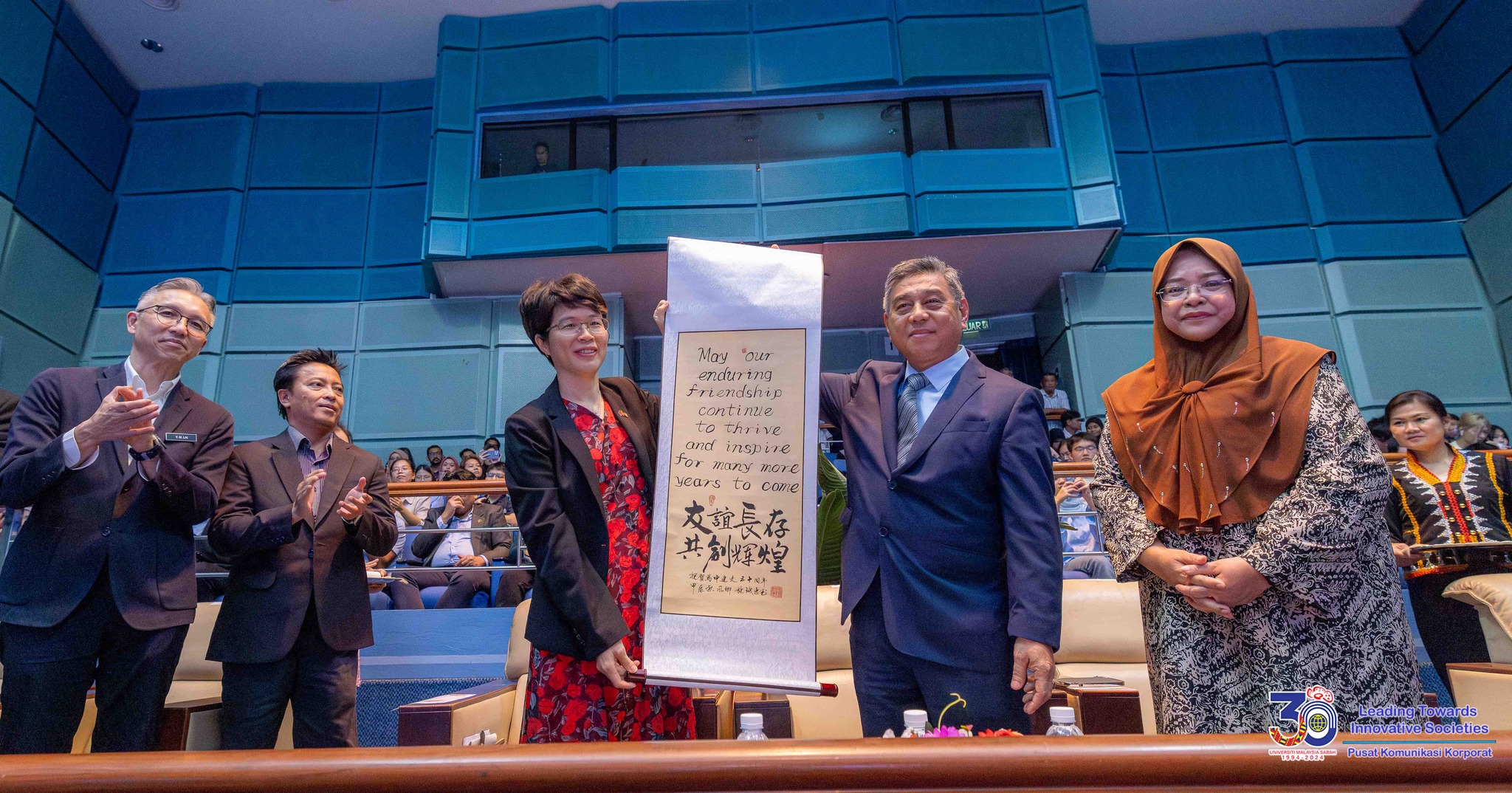 Universiti Malaysia Sabah (UMS) celebrated its 30th anniversary together with the 50th anniversary of Malaysia-China diplomatic relations at its Dewan Resital, under the theme “Unity in Celebration: 30 Years of Excellence, 50 Years of Friendship.”
Universiti Malaysia Sabah (UMS) celebrated its 30th anniversary together with the 50th anniversary of Malaysia-China diplomatic relations at its Dewan Resital, under the theme “Unity in Celebration: 30 Years of Excellence, 50 Years of Friendship.”